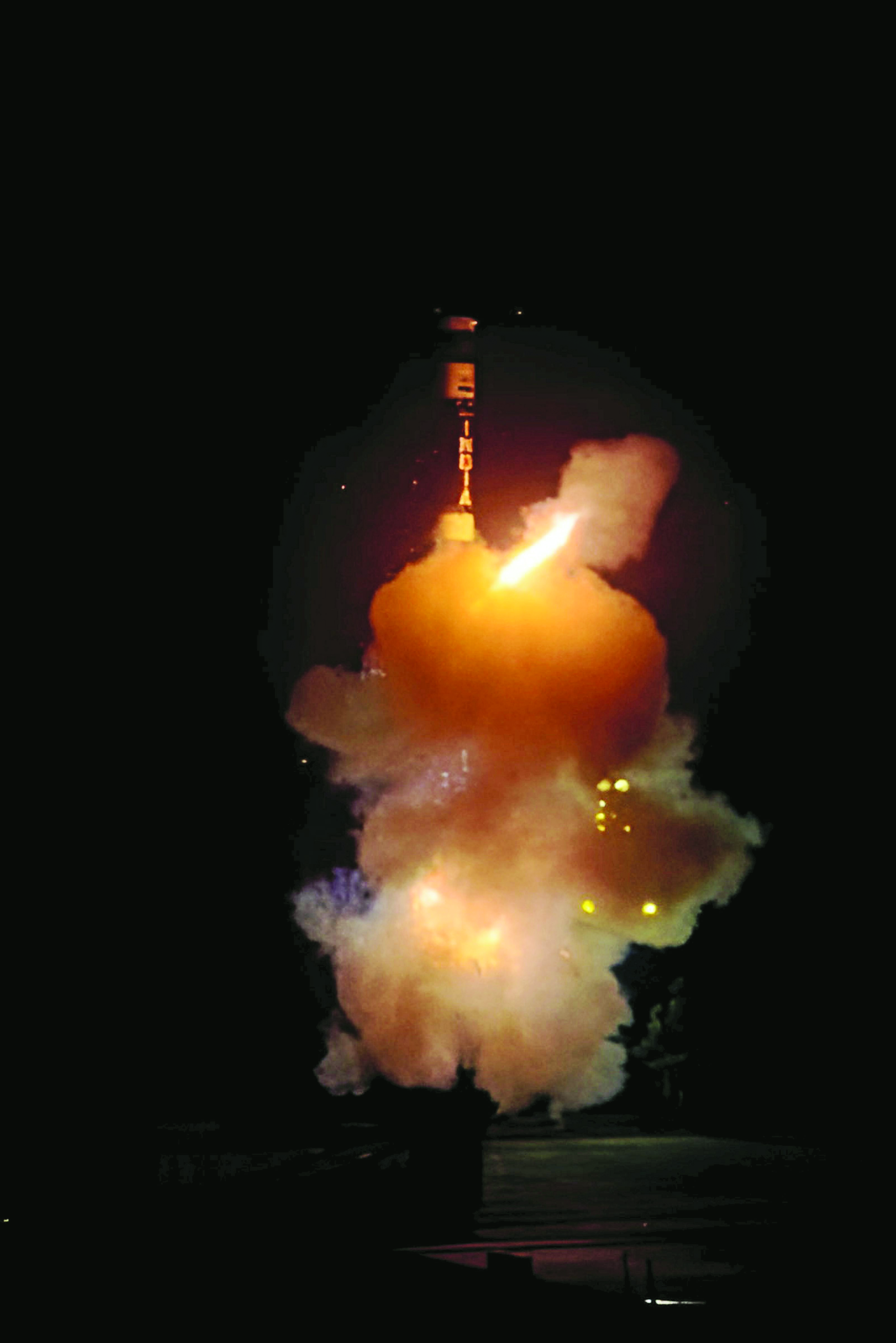India successfully tests night launch of nuclear-capable Agni Prime missile

New Delhi: India has achieved a significant milestone in its strategic deterrence capability by successfully conducting a night launch of the new generation nuclear-capable ballistic missile, ‘Agni Prime’. The launch took place from Abdul Kalam Island, off the Odisha coast.
The Defence Ministry confirmed that the test flight was executed on Wednesday evening, meeting all trial objectives and demonstrating reliable performance. This was validated by data from several range sensors deployed across various locations.
The flight test of the missile, which boasts a strike range of 1,000 to 2,000 km, was carried out by the Strategic Forces Command (SFC) in collaboration with the Defence Research and Development Organisation (DRDO).
Defence Minister Rajnath Singh lauded the DRDO, SFC, and the armed forces for the successful test flight, stating that the missile’s successful development and induction will significantly enhance the military’s capabilities. The ministry further stated that the successful flight test of the Agni-Prime missile was conducted from Dr APJ Abdul Kalam Island off the Odisha coast at around 7 PM on April 3.
The launch was overseen by Chief of Defence Staff Gen Anil Chauhan, the Chief of Strategic Forces Command, and senior officials from the DRDO and the Indian Army. Gen Chauhan and Chairman DRDO Samir V Kamat commended the SFC and DRDO for the successful flight test.
Last month, India successfully conducted the first flight test of the indigenously developed Agni-5 missile with a multiple independently targetable re-entry vehicle (MIRV) under its ‘Mission Divyastra’. This achievement places India among a select group of nations with such capabilities. The MIRV feature allows a single missile to deploy multiple warheads at different locations.
The Agni-V missile, with a range of up to 5,000 km, can cover almost all of Asia, including the northernmost part of China, and some regions in Europe. The Agni 1 to 4 missiles, with ranges from 700 km to 3,500 km, have already been deployed.
In June last year, India successfully conducted the night launch of the ‘Agni Prime’. In April, India successfully conducted the maiden flight trial of an endo-atmospheric interceptor missile from a ship off the Odisha coast in the Bay of Bengal, as part of its ambitious ballistic missile defence programme. This trial aimed to engage and neutralise a hostile ballistic missile threat, thereby elevating India into an elite club of nations with such capabilities.
India continues to develop capabilities to intercept hostile ballistic missiles both inside and outside the earth’s atmospheric limits.



